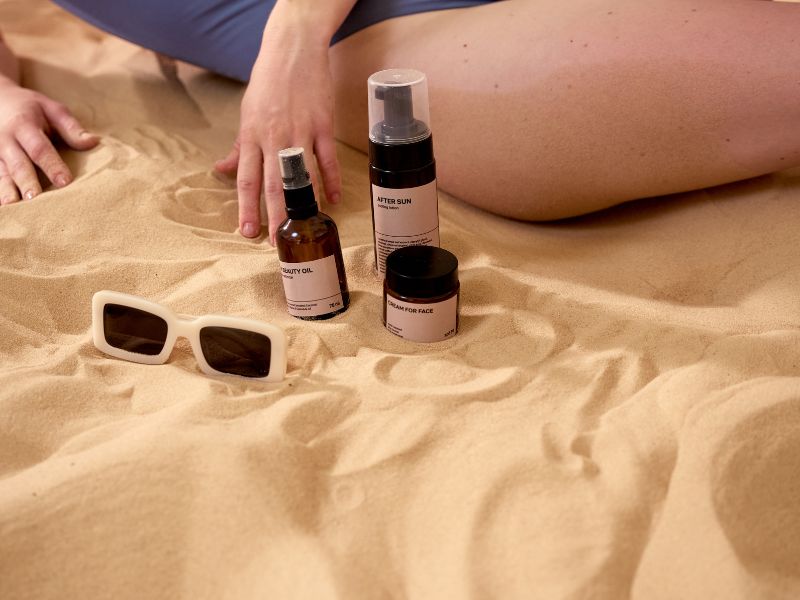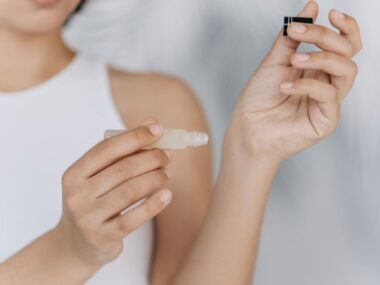When it comes to fair skin, choosing the right sunscreen is crucial. Fair skin is more susceptible to sunburn, UV-induced aging, and skin cancer due to the lower levels of melanin, a natural pigment that offers some UV protection. The ideal sunscreen for fair skin should offer high, broad-spectrum UV protection, be gentle to prevent irritation and be compatible with fair skin’s unique needs. The article “Which Sunscreen Is Best For Fair Skin?” dives into the best sunscreen options for fair skin, key ingredients to look for, types of sunscreens, and tips for maximizing sun protection.
Understanding Fair Skin and Sun Sensitivity
Fair skin, often classified as Type I or Type II on the Fitzpatrick scale, burns easily, rarely tans, and is prone to sunburn and UV-related skin damage. Fair-skinned individuals require sunscreens that provide high SPF protection, broad-spectrum coverage, and formulations that won’t irritate or clog sensitive skin.
Key Challenges for Fair Skin
- Sunburn and UV Damage: Fair skin can burn within minutes in direct sunlight without proper protection.
- Aging and Hyperpigmentation: Prolonged UV exposure can lead to premature aging and even pigmentation issues like melasma.
- Skin Cancer Risk: Individuals with fair skin have a higher risk of developing skin cancers like basal cell carcinoma and melanoma.
For these reasons, dermatologists recommend daily sunscreen use, even on cloudy days, and encourage reapplication for prolonged outdoor activities.
Broad-Spectrum Protection: UVA and UVB Defense
A good sunscreen for fair skin must offer broad-spectrum protection. UVB rays primarily cause sunburn, while UVA rays penetrate deeper, contributing to skin aging and cancer. The best sunscreens cover both spectrums to minimize damage.
Why Broad-Spectrum Matters
- UVA Defense: UVA rays penetrate glass and clouds, making them a daily concern even on cloudy or cold days. For fair skin, UVA exposure can accelerate aging and pigment changes.
- UVB Defense: SPF mainly protects against UVB, preventing immediate sunburn but not the deeper damage caused by UVA. Look for “broad-spectrum” on labels to ensure both types of protection.
SPF Requirements for Fair Skin
For fair-skinned individuals, dermatologists generally recommend SPF 30 or higher. SPF 30 blocks around 97% of UVB rays, while SPF 50 offers a slightly higher level of protection, blocking approximately 98% of UVB rays. Higher SPFs, while slightly more effective, still require reapplication every two hours, especially with prolonged exposure or after sweating or swimming.
SPF Recommendations
- SPF 30: Good for everyday use indoors or with minimal outdoor exposure.
- SPF 50: Recommended for extended outdoor activities and intense sun exposure, such as a beach day or hiking.
Physical (Mineral) vs. Chemical Sunscreens
Understanding the types of sunscreen can help fair-skinned individuals select a product that provides optimal protection without irritating sensitive skin. There are two main types: physical (mineral) and chemical sunscreens.
Physical (Mineral) Sunscreens
Physical sunscreens contain zinc oxide or titanium dioxide, which sit on the skin’s surface and reflect UV rays. These sunscreens are ideal for fair and sensitive skin as they:
- Provide immediate protection after application.
- Are less likely to cause irritation since they don’t absorb into the skin.
- Often come in formulations without fragrance or common allergens.
Mineral sunscreens may leave a white cast, but newer formulas blend better on fair skin.
Chemical Sunscreens
Chemical sunscreens contain ingredients like oxybenzone, avobenzone, octocrylene, and others that absorb UV rays and convert them into heat, which is then released from the skin. They are popular for:
- Ease of application: Chemical sunscreens tend to be lighter and often invisible on the skin.
- Long-lasting protection: However, they need 15-20 minutes after application to become effective.
For fair skin, chemical sunscreens may be suitable if they contain gentle ingredients and don’t cause irritation. However, some chemical filters can be irritating, so patch-testing is recommended.
Key Ingredients to Look for in Sunscreens for Fair Skin
Fair skin often reacts more sensitively, so it’s wise to choose sunscreens with soothing, protective ingredients.
Recommended Ingredients
- Zinc Oxide: Known for broad-spectrum protection, especially against UVA rays. Non-comedogenic and suitable for sensitive skin.
- Titanium Dioxide: Provides additional UV protection with a lighter texture than zinc oxide.
- Antioxidants (e.g., Vitamin E, Green Tea Extract): Help to neutralize free radicals and offer added protection against environmental stressors.
- Hyaluronic Acid: For hydrating and maintaining skin’s moisture balance, ideal for fair skin that may lean dry or sensitive.
Which Sunscreen Is Best For Fair Skin: Top Sunscreens for Fair Skin
Here are some of the best-rated sunscreens for fair skin:
1. EltaMD UV Clear Broad-Spectrum SPF 46
- Type: Mineral and Chemical blend.
- Key Ingredients: Zinc oxide, niacinamide (soothing agent), hyaluronic acid.
- Pros: Lightweight, non-comedogenic, suitable for sensitive and acne-prone fair skin.
- Cons: Slightly higher price point.
- Recommended Use: Everyday face sunscreen, perfect for sensitive fair skin.
2. La Roche-Posay Anthelios Mineral SPF 50
- Type: Mineral.
- Key Ingredients: Zinc oxide, titanium dioxide.
- Pros: Fragrance-free, water-resistant, gentle formula.
- Cons: May leave a slight white cast.
- Recommended Use: Extended outdoor use; ideal for daily wear with high SPF needs.
3. Neutrogena Sheer Zinc Oxide SPF 50
- Type: Mineral.
- Key Ingredients: Zinc oxide.
- Pros: Hypoallergenic, suitable for sensitive skin, fragrance-free.
- Cons: Tends to leave a white cast; best for fair skin.
- Recommended Use: For beach days and high exposure activities.
4. CeraVe Hydrating Mineral Sunscreen SPF 30
- Type: Mineral.
- Key Ingredients: Zinc oxide, ceramides, hyaluronic acid.
- Pros: Hydrating, non-irritating, fragrance-free.
- Cons: Requires reapplication after swimming or sweating.
- Recommended Use: Daily moisturizer and sunscreen for fair, dry skin types.
5. Supergoop! Unseen Sunscreen SPF 40
- Type: Chemical.
- Key Ingredients: Avobenzone, octocrylene, homosalate.
- Pros: Lightweight, invisible on skin, ideal under makeup.
- Cons: Not suitable for very sensitive skin.
- Recommended Use: Best for daily use, especially for makeup wearers.
Tips for Applying Sunscreen on Fair Skin
Proper application of sunscreen is as important as choosing the right one. Here are a few tips for fair-skinned individuals:
- Apply Generously: Use about a teaspoon for the face and a shot-glass worth for the body to ensure adequate coverage.
- Reapply Every Two Hours: Sunscreens need reapplication, especially after swimming, sweating, or extended sun exposure.
- Don’t Skip Areas: Commonly missed areas include the ears, neck, hands, and tops of the feet.
- Layer with Makeup: Sunscreen should be the last step in skincare, followed by makeup. Look for foundations or powders with added SPF for an extra layer of protection.
Conclusion
For those with fair skin, choosing the right sunscreen is an essential step in maintaining skin health. Broad-spectrum, high-SPF sunscreens—especially those with mineral formulations—offer optimal protection, and selecting products with gentle, hydrating ingredients can prevent irritation. By understanding the unique needs of fair skin and consistently applying sunscreen, individuals can reduce the risks of sunburn, premature aging, and skin cancer.
Using sunscreen daily, regardless of season, ensures that fair skin stays protected. Incorporating additional protection like hats, sunglasses, and sun-protective clothing further enhances defense against harmful UV rays, ensuring that fair skin remains healthy and radiant.






